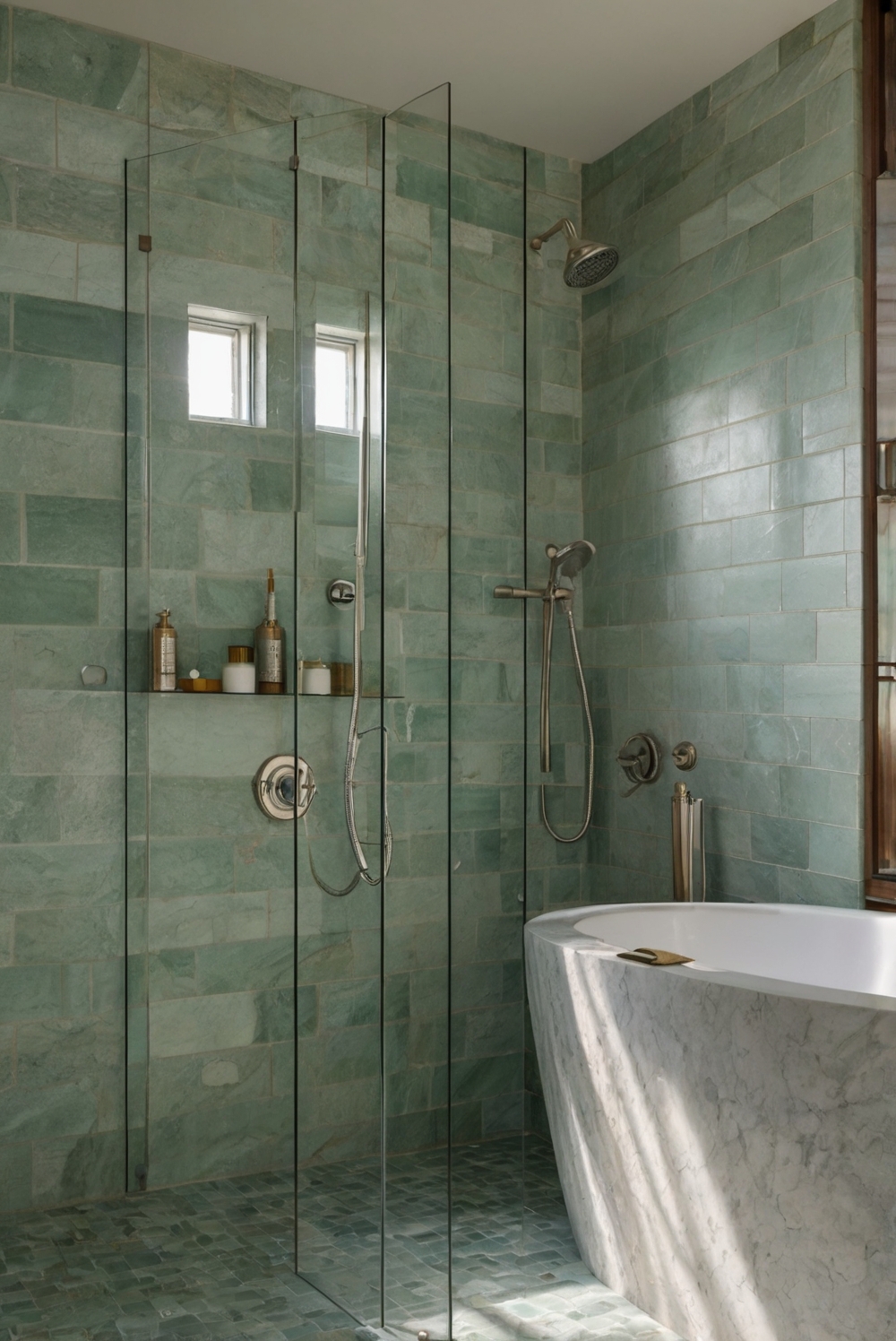Discover the significance of sealing natural stone tiles in your bathroom interiors. Follow a daily routine with insightful decor tips for a pristine and stylish space.
Why is sealing natural stone tiles important in a bathroom?
Sealing natural stone tiles in a bathroom is crucial for maintaining their durability and enhancing the aesthetic appeal of the space. Without proper sealing, natural stone tiles are susceptible to water damage, stains, and discoloration from everyday use. By sealing the tiles, you create a protective barrier that repels moisture and prevents dirt and grime from penetrating the surface. This not only prolongs the lifespan of the tiles but also makes cleaning and maintenance easier. Moreover, sealed tiles maintain their original color and finish, elevating the overall look of the bathroom.
To ensure effective sealing, it’s important to choose a high-quality sealant specific to natural stone and follow the manufacturer’s instructions for application. Regular resealing is recommended to maintain the protective layer, especially in high-traffic areas like bathrooms. With proper sealing, your natural stone tiles will not only withstand daily wear and tear but also preserve their beauty for years to come, making your bathroom a stylish and functional space in your home decor collection.
Why Sealing Natural Stone Tiles is Important in a Bathroom
Sealing natural stone tiles in a bathroom is crucial for several reasons. Firstly, it helps protect the stone from damage caused by water, moisture, and chemicals commonly found in bathrooms. Without proper sealing, natural stone is susceptible to stains, discoloration, and etching from soap scum, shampoo, and other products used in the bathroom.
Preservation and Longevity
Sealing the tiles also preserves their natural beauty and enhances their durability. Natural stone is an investment in your bathroom, and sealing ensures that it lasts longer and maintains its original appearance over time. By creating a protective barrier on the surface, sealing natural stone tiles reduces the risk of chipping, scratching, and other forms of damage.
Hygiene and Maintenance
Furthermore, sealing natural stone tiles in a bathroom enhances hygiene and simplifies maintenance. Sealed tiles are easier to clean and less prone to mold and mildew growth, making them ideal for a wet environment like a bathroom. The sealant prevents water and bacteria from penetrating the stone, promoting a healthier and cleaner space.
Prevention of Damage and Costly Repairs
Sealing natural stone tiles in a bathroom is essential for preventing damage and avoiding costly repairs in the future. When moisture and stains seep into unsealed stone, they can cause permanent harm that may require professional restoration services to fix. By investing in sealing upfront, you protect your natural stone tiles and save money in the long run.
Enhanced Aesthetic Appeal
Finally, sealing natural stone tiles enhances the aesthetic appeal of your bathroom. The sealant brings out the natural colors and patterns of the stone, making it shine and adding elegance to the space. Whether you have marble, granite, limestone, or travertine tiles, sealing them will highlight their beauty and make your bathroom more visually appealing.
In conclusion, sealing natural stone tiles in a bathroom is a crucial step to protect, preserve, and enhance the beauty of your investment. By sealing the tiles, you ensure their longevity, promote hygiene, prevent damage, and elevate the overall look of your bathroom. Make sealing a priority in your bathroom maintenance routine to enjoy the benefits of beautiful and durable natural stone tiles for years to come.

